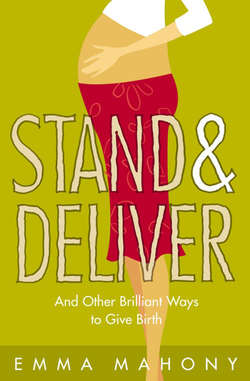Читать книгу Stand and Deliver!: And other Brilliant Ways to Give Birth - Emma Mahony - Страница 12
Testing, Testing, One, Two, Three
ОглавлениеAs well as the brief chats with the doctor, there are also all sorts of tests that you may have in your pregnancy. The main thing you need to know about all these tests is that of all the 760,000 women who fall pregnant in the UK every year, only a tiny, tiny percentage will have to alter the course of their pregnancy after being screened. Some of the tests, such as routine screening for gestational diabetes (where you are given a glucose drink to take beforehand and, unsurprisingly, your blood sugar levels go wild) are being abandoned now anyway. Peter Brocklehurst, Director of the National Perinatal Epidemiology Unit, has this to say about the GTT (Glucose Tolerance Test): ‘The test is unreliable, doctors do not know how to treat it, and anxiety in the minds of the woman and her carers could be raised, increasing the risk of the pregnancy ending in a Caesarean.’2
I’m not suggesting that some of these tests don’t have a place. The urine test to find out whether there is a certain protein in the pee to indicate pre-eclampsia (a pregnancy-induced condition that is treatable by early delivery of the baby) is a life-saver. But for the hundreds of thousands of women who are tested routinely during their pregnancies, and then retested because the result was mis-read or read as a ‘false positive’ – and who sometimes having to wait weeks for the result – this most magical time can turn into a fearful one. There is a lot to be said for ignorance being bliss, and my mother would argue that her 1960s generation, pre-ultrasound, was a lot better off when they simply looked forward to starting a family come what may. And this from a woman who didn’t know she was carrying twins until she went into labour!
